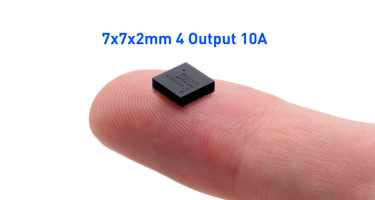Register your interest
In the MPS power solutions
MPS power solutions are transforming the way engineers approach embedded power management in the era of edge AI. With system complexity surging across industrial, AI, and FPGA-based designs, Monolithic Power Systems (MPS) is delivering modules that help tame the challenge of multi-rail voltage regulation, thermal limits, and compliance requirements. At Embedded World 2025, MPS unveiled its latest innovations aimed squarely at engineers building next-gen compute at the edge.
What sets MPS power solutions apart is their “grid to socket” philosophy. Whether a design starts with a 48V industrial rail or a conventional wall adapter, MPS modules are ready to handle conversion, sequencing, and thermal monitoring all the way to delicate sub-1V core rails. This vertical integration streamlines development for complex systems where every component demands unique power behaviour.
The latest MPS power solutions like the MPM3599 deliver the performance needed for modern AI SoCs. This configurable module provides up to 24A from a single package or dual 12A rails, and it includes PMBus compatibility, digital configuration, and integrated diagnostics. For ultra-compact designs, the MPM3596 offers 6A output in a 10×10 mm package—and can be scaled up to 36A using six modules in parallel. These modules aren’t just efficient—they’re designed to adapt to evolving loads and constraints.
Thermal performance and EMI control are also central to MPS power solutions. With rigorous pre-compliance testing across global EMI labs, the company ensures its modules are ready to meet industrial and automotive-grade standards. This lets engineers move faster through certification without compromising power integrity. Dynamic sequencing, programmable frequencies, and real-time telemetry make MPS modules ideal for rapidly changing AI and embedded vision workloads.
For engineers navigating the post-2022 design landscape—characterised by tighter power budgets, denser PCBs, and real-time compute—MPS power solutions provide a modular, agile answer. Whether it’s a high-current FPGA rail or a smart edge AI node, these modules bring scalability, intelligence, and peace of mind to power design.
In short, MPS power solutions remove the pain from powering complex embedded systems. From startup to full load, they let you focus on what matters most: performance, not power problems.
Register your interest
In the MPS power solutions
